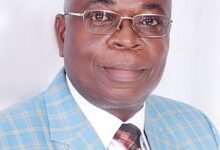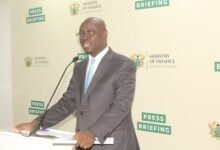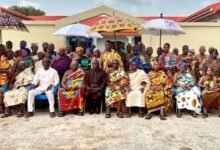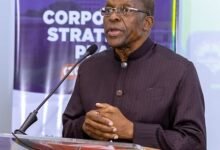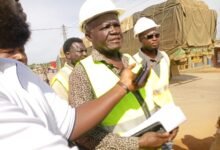
The Supreme Court (SC) will on November 11 deliver judgement on interpretation of article 97(1) (g) and (h) of the 1992 Constitution, regarding the declaration of four seats vacant in Parliament by the Speaker of Parliament, Mr Alban Sumana Kingsford Bagbin.
The court was invited to interpret this constitutional provision after rival meanings were placed on the provision in the process leading to the declaration of three New Patriotic Party (NPP) seats and one National Democratic Congress (NDC) seat vacant.
Prior to adjourning proceedings, a five-member panel presided over by the Chief Justice, Justice Gertrude Sackey Torkonoo, dismissed an application by the Speaker asking the court to set aside it ruling against the declaration of the four seats vacant.
On October 18, the Supreme Court ordered Mr Bagbin to stay his decision on the vacant seats, pending the status of the affected seats by the Supreme Court.
Displeased by the ruling of the SC, the Speaker, instructed his counsel, Mr Thaddeus Sory, to file an application to overturn the decision of the SC.
One of the grounds for asking the SC to quash it’s decision was that one the judges, Justice Yao Gaewu, was a member of the NPP, and thus his sitting on the matter may compromise the outcome of the case.
Mr Sory wanted the judge to recuse himself from the panel because of the tendency of the obvious bias that he may exhibit while being a member of the panel.
But, the court discounted the argument of Mr Sory as it indicated that once the judge was vetted and approved by Parliament, he was competent to sit on any matter that comes before the court.
The court, speaking through Justice Torkonoo, held that the Speaker’s application amounted to a “misinformation and misapprehension of the law.”
She said the Speaker’s submission that the court had no jurisdiction in the matter was misconceived because the matter in question was clear case of constitutional interpretation.
“It is, therefore, misinformation and misapprehension of law for the applicant to represent that the Supreme Court has no jurisdiction to give interpretation on a provision of the constitution that has attracted two different meanings,” Justice Torkonoo said.
Mr Alexander Afenyo-Markin, the leader of the New Patriotic Party (NPP) caucus in Parliament, went to the Supreme Court to challenge the decision of the Speaker of Parliament, Mr Alban Sumana Kingsford Bagbin, to declare four seats vacant.
He joined the Attorney General’s office as the second defendant in the second substantive suit which seeking the apex court to interpret Article 97 of the Constitution, 1992.
In his statement of case filed on Tuesday, October 22, the Attorney General said the constitution does not mandate the vacation of a seat by an MP who files to contest a future election as an independent candidate or under a different party ticket.
He contends that an MP’s seat can only be vacated during the current term if they switch parties or become independent within the lifespan of the existing Parliament.
“The filing of nomination by a sitting MP to contest a future parliamentary election on the ticket of a political party, when he had been elected for the life of the current Parliament as an independent candidate, does not result in a vacation of seat,” the Attorney-General indicated.
“Every arm of Government or agency of the State, including Parliament, is subject to the Constitution and to the Supreme Court’s judicial review powers of determining the constitutionality of actions and decisions by that arm or agency,” the AG submitted.
BY MALIK SULLEMANA


